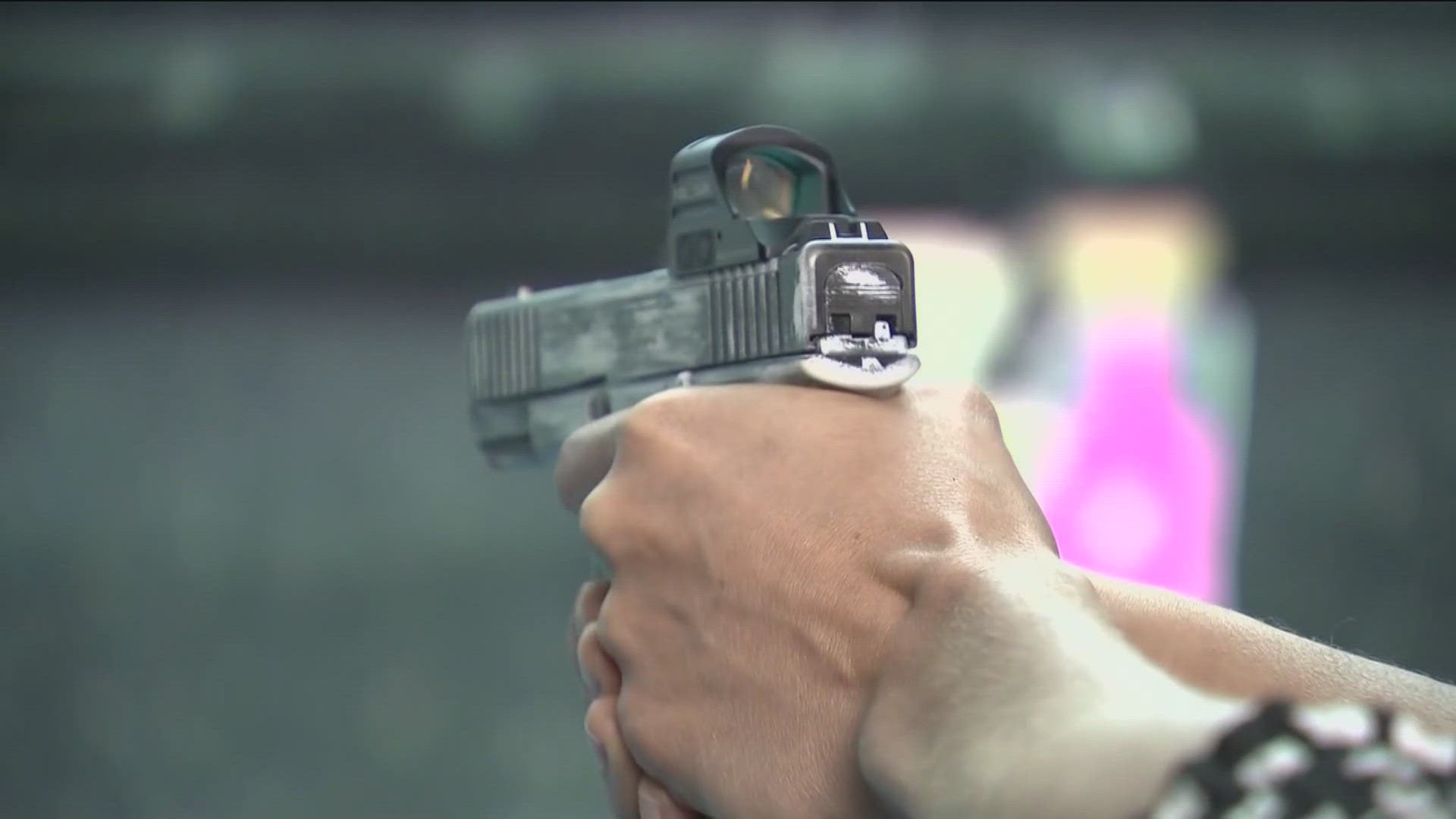ATLANTA — Metro Atlanta government leaders and community activists are trying to figure out how to combat youth gun violence.
Groups met at Metropolitan Library to discuss recent shootings and hopefully how to prevent the violence from getting worse. It's a multi-county effort.
On the panel was DeKalb County social worker Shannon Butler, Atlanta Board of Education Member Eshe Collins, Fort Valley State Sophomore Kenneth Palmer, community activist Winston Taylor, Hope Hustlers CEO Leonard Dungee, Professor of Criminal Justice Volkan Topalli, and ATL Care Founder Erik Wilder. Peace Champions hosted the event.
There were also some people personally affected by gun violence. That's how Betty Maddox lost her son.
"He was shot and killed on this street, Metropolitan, in 1993 by a 16-year-old," Maddox said.
Yolander Ford lost her 9-year-old son Nigel Brown to gun violence, in Albany.
"He was in his bed, asleep," Ford said. "And a stray bullet came through his window."
Marlin Johnson lost her 23-year-old son D're Johnson to bullets as well, on Commerce Drive.
"He had died right on the scene," Johnson said.
In late June, the U.S. Surgeon General issued an advisory declaring gun violence a public health crisis. It's a message advocates like Dungee have been saying for years.
"This is an epidemic," Dungee said. "It's no longer gang warfare only and whatever. It's people killing people now because everybody has a gun because everybody has a gun."
Dungee is putting young people at the forefront. He's recovered from his criminal past and constantly has his boots on the ground with their issues.
Johnson is also pleading for action.
"We need to be a resource," Johnson said. "We need to have safe spaces... We need to stop being judgmental. Their souls are on the line."
Panelists discussed a 10-point plan. The groups hope that speaking directly with children, meeting with the highest-risk individuals where they are, and asking what they need will make a change before it's too late.
"It's not all mental health, but it is a public health issue," Dungee said. "We have to treat it like a disease. We have to stop the transmission. We have to prevent the spread and change group and social norms, just like COVID."
Dungee said this is just the Atlanta version of work being done all around the country. He said it's going to take faith leaders, academic institutions, the media, and business partnerships to make this plan happen.
Leaders also suggested that communities with violence not be labeled as dangerous, and rather plans need to be put in place to get to the route of each community's needs.

